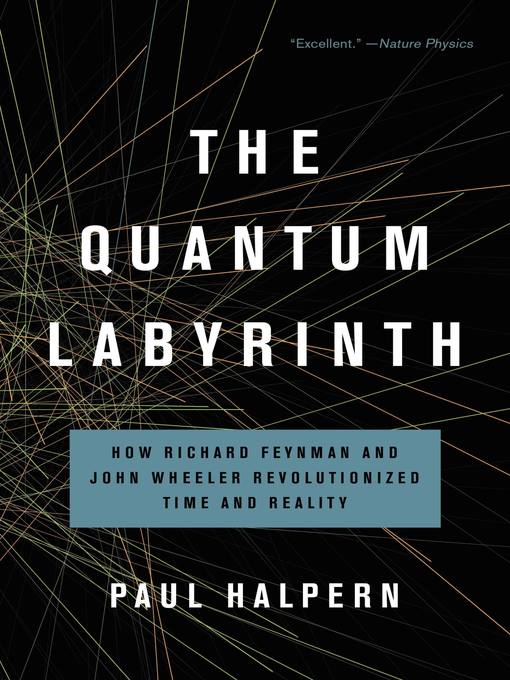
The Quantum Labyrinth
How Richard Feynman and John Wheeler Revolutionized Time and Reality
- اطلاعات
- نقد و بررسی
- دیدگاه کاربران
نقد و بررسی

September 1, 2017
Physicists Richard Feynman (1918-88) and John Wheeler (1911-2006) tackled the greatest philosophical questions: How did the universe begin? Will it end? What is time? They also wrestled with weighty moral questions around the Manhattan Project and the space shuttle Challenger disaster. Halpern (Einstein's Dice and Schrodinger's Cat) interweaves these stories with those of Feynman's and Wheeler's personal lives to show who they were and how their minds worked. The practical Feynman sought simply "to find a set of [testable] rules which would agree with the behavior of nature," while the comparatively more speculative Wheeler strove to discover the fundamental components of the cosmos and their organizing principles. Their dynamic led to much progress and recognition, including Feynman's sharing with Wheeler the 1965 Nobel Prize in Physics. While readers without a quantum physics background might find parts of the book to be overly technical, Halpern generally paints an evocative picture of the tension between cooperation and competition felt by researchers at the cutting edge. VERDICT For those interested in the histories of physics, astronomy, and/or cosmology.--Ricardo Laskaris, York Univ. Lib., Toronto
Copyright 2017 Library Journal, LLC Used with permission.

Starred review from September 15, 2017
Expiring of cancer at 69, the pioneering American physicist Richard Feynman complained, I'd hate to die twice. It's so boring. Halpern here recounts how Feynman steered far from boredom during a life that revolutionized quantum physics. But readers soon see that Feynman achieved his breakthroughs in physics by collaborating with his mentor, John Wheeler, a collaboration that proved stunningly fruitful despite the stark differences separating the scientistsFeynman, the flamboyant playboy who developed his science through painstaking calculation of empirically verifiable formulas; Wheeler, the staid and conservative academic who hatched ideas so outrageous they struck his colleagues as crazy. With the same clarity that has attracted readers to Einstein's Dice and Schrodinger's Cat (2015) and his other books of popular science, Halpern retraces the way this unlikely pair smashed traditional understandings of time, giving a single subatomic particle a labyrinth of histories and transforming a cosmic wormhole into a portal connecting past and future. As a compelling reminder that even the most triumphant science comes from vulnerable humans, Halpern also chronicles the wrenching sorrow Feynman experiences in losing his first wife, the agonizing indecision that envelops Wheeler when asked to helped develop a hydrogen superbomb. A partnership of fascinating personalities united in performing epoch-making science!(Reprinted with permission of Booklist, copyright 2017, American Library Association.)




دیدگاه کاربران